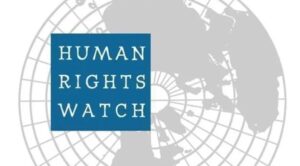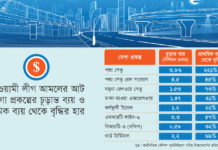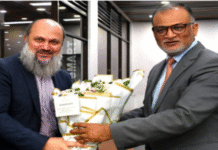 The Human Rights Watch on Thursday in a statement accused the Bangladesh police of administering extensive custodial tortures, including beatings, electric shocks, waterboarding, deliberately shooting to maim, including knee-capping, mock executions, and forced nudity.
The Human Rights Watch on Thursday in a statement accused the Bangladesh police of administering extensive custodial tortures, including beatings, electric shocks, waterboarding, deliberately shooting to maim, including knee-capping, mock executions, and forced nudity.
‘Recent allegations of torture in police custody underscore its pervasiveness and the culture of impunity for security forces. Such acts have included beatings, electric shocks, waterboarding, deliberately shooting to maim, including knee-capping, mock executions, and forced nudity,’ said the rights group in its evaluation of the rights situation in Bangladesh.
‘Ongoing mass political arrests, enforced disappearance, extrajudicial killings, and torture of political opponents and critics make the Bangladesh government’s commitments to ‘protecting human rights for all’ meaningless,’ said Julia Bleckner, senior Asia researcher at Human Rights Watch.
‘The only way for the government to show genuine commitment to human rights is for it to act on its obligations under the international law, including by addressing serious security force abuses and putting an immediate end to harassment and abuse of political opponents, critics, and human rights defenders,’ the rights body said.
The statement also said that the Bangladesh government should seriously respond to concerns regarding grave abuses and the crackdown on civil society raised by member states on November 13, 2023, during Bangladesh’s Universal Periodic Review.
The review took place amid a violent ongoing crackdown by Bangladesh security forces ahead of the 2024 general election.
During the review, the Bangladesh delegation dismissed evidence of using excessive force during recent electoral violence, stating that ‘responses from law enforcement agencies were minimal, reasonable, and restrained.’
The statement read that the government claimed that there had been no arbitrary detentions and that arrests had been made ‘without any political consideration,’ despite mass arbitrary arrests of the political opposition, including almost 10,000 opposition leaders and activists over the past few weeks.
According to Bangladeshi human rights monitors, security forces have carried out over 600 enforced disappearances since 2009. While some people were later released, produced before court, or killed, nearly 100 people remain missing. Families of victims describe police and other security forces’ outright refusal to register complaints or conduct a legitimate investigation, at times even citing ‘orders from above.’
During the UPR, multiple member states said that the Bangladesh government should ratify the International Convention for the Protection of All Persons from Enforced Disappearance.
The HRW recommended that as a first step the Bangladesh government should accept the offer of support from the Office of the United Nations High Commissioner for Human Rights to establish a ‘specialised mechanism that works closely with victims, families and civil society to investigate allegations of enforced disappearances and extrajudicial killings.’
The government should also invite other relevant UN experts, including the Working Group on Arbitrary Detention, the special rapporteur on extrajudicial, summary or arbitrary executions, and the special rapporteur on torture and other cruel, inhuman or degrading treatment, or punishment, to investigate and make appropriate recommendations to ensure justice and accountability.
New Age









